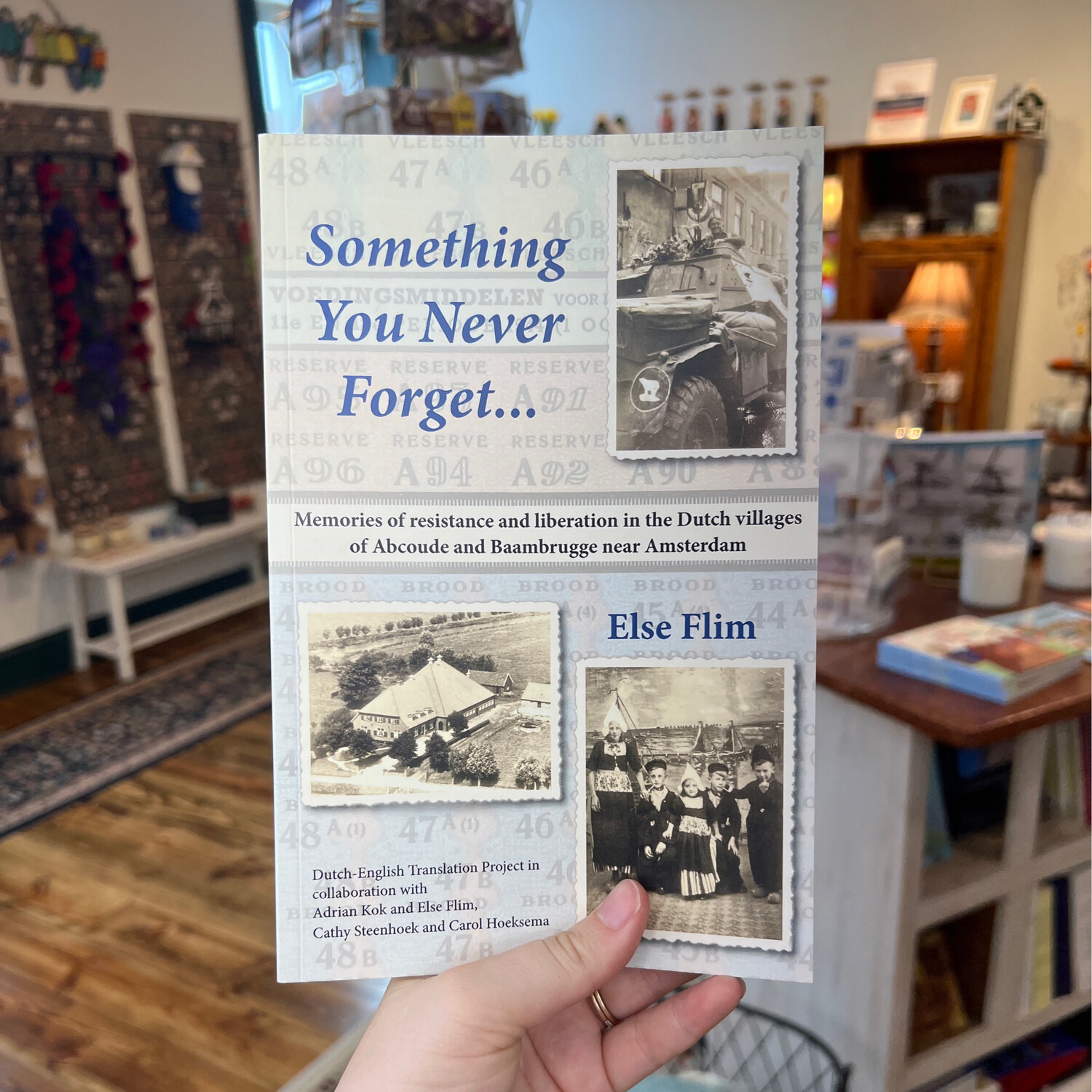•BOOK• Something You Never Forget...
$18.95
In stock
1
Product Details
Do people born after WWII know what life was like in the Netherlands during the war? What took place in the small villages near Amsterdam could have occurred in any Dutch village between 1940-1945.Something You Never Forget began to take shape at the end of 1994. Farmer lan Verhoef, a resident of the village of Abcoude, told the author, Else Flim, about the impact of his war memories. He asked her to write a book about his family's activities in the resistance, and about the people who were in hiding at their farm called Schimmelpenninckhoeve, in Baambrugge. The reports Mr. Verhoef collected did not provide sufficient material for a book. However, Else Flim needed the book to be ready by the end of April 1995, for the fiftieth anniversary of the liberation of Holland. She began to interview people who could recall their wartime experiences. Using these interviews as a guide, she wrote stories in the first person singular. The reader will experience a variety of styles, because the voices of many are echoed in this revised edition of the book.Each tells his or her own story: seeing local Jews being hauled away, seeing your house being requisitioned, observing a German officer in your living room, desperately looking for food, waiting in the night for a weapons drop, helping the people in hiding in your hayloft or under your floorboards, walking on a piece of wood tied with strings, carrying a secret message for the resistance at the risk of your own life, hoping that the message will reach the Allies. And the overwhelming feelings of being liberated, and being able to say, "We are FREE!"ading these personal memories forces us to reflect on the norms and values of our odern-day life, with the duty to guard and preserve peace.
Save this product for later
•BOOK• Something You Never Forget...
Display prices in:USD
